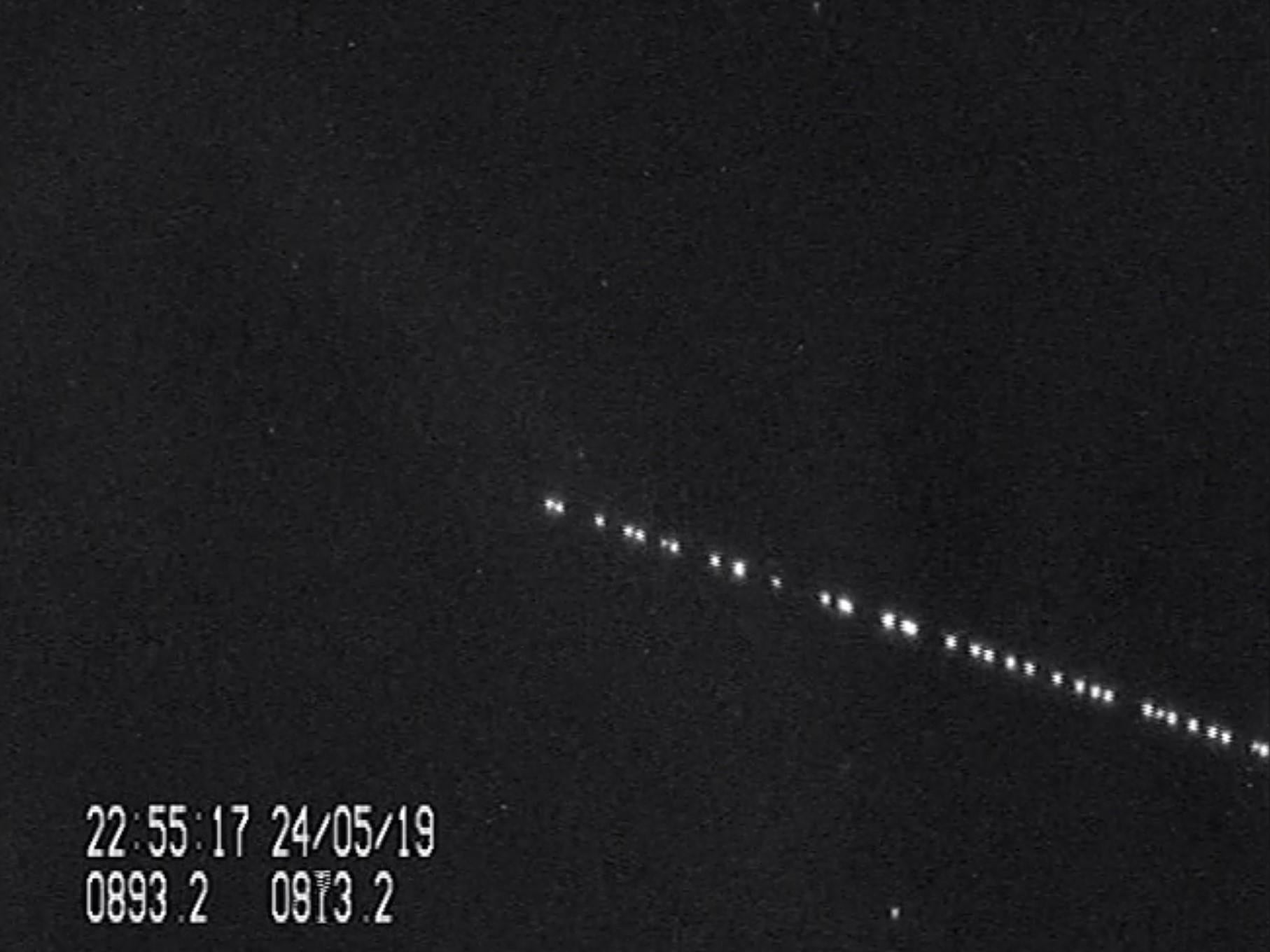Elon Musk says his internet satellites won't stop us seeing into space, putting him on collision course with astronomers
'It can't be that big of a deal'

SpaceX founder Elon Musk has rejected criticism that his company's satellites interfere with observations of the night's sky from Earth.
Hundreds of satellites have already been launched as part of SpaceX's Starlink project, which aims to deliver universal internet access via a constellation of up to 12,000 micro satellites in low-Earth orbit.
Some astronomers claim the flat-panel satellites disrupt images from optical telescopes and interrupt radio frequencies, though Musk refutes this.
Speaking at the Satellite 2020 conference in Washington on Monday, Mr Musk suggested that any concerns were overexaggerated.
"I am confident that we will not cause any impact whatsoever in astronomical discoveries, zero. That's my prediction. We will take corrective action if it's above zero," he said.
"I've not met someone who can tell me where all of them are. So it can't be that big of a deal."
SpaceX previously told The Independent that it was coordinating with the European radio astronomy community and the US National Radio Astronomy Observatory in an effort to avoid disrupting critical astronomy activities.
A spokesperson also said the company was "taking steps to make the base of Starlink satellites black to help mitigate the impacts on the astronomy community".
A darkening treatment designed to lessen reflectivity was applied to a batch of 60 satellites sent up earlier this year.
The full extent of any impact on space observations remains unclear, though astrophysicist Dave Clements said last year that the constellation would be a "tragedy" and could potentially block the view of Earth-bound asteroids.
“They present a foreground between what we’re observing from the Earth and the rest of the universe, so they get in the way of everything,” he said. “And you’ll miss whatever is behind them, whether that’s a nearby potentially hazardous asteroid or the most distant Quasar in the universe.”
SpaceX is one of several firms working to deliver internet connectivity through satellite constellations, with others including US giant Amazon and UK startup OneWeb. Other companies to have tried and failed include Orbcomm and Irdium.
Mr Musk said he hoped SpaceX's Starlink will be the first successful effort and said it should go live in northern US and Canada later this year. A global roll out will then follow in 2021.
Users in remote areas or regions with poor internet connectivity would be able to plug a dongle into their device, which resembles a "UFO on a stick".
They would then be able to stream high-definition movies and play online video games.
"The box will have just two instructions and they can be done in either order: point at sky, plug in," he said.
Join our commenting forum
Join thought-provoking conversations, follow other Independent readers and see their replies
Comments
Bookmark popover
Removed from bookmarks